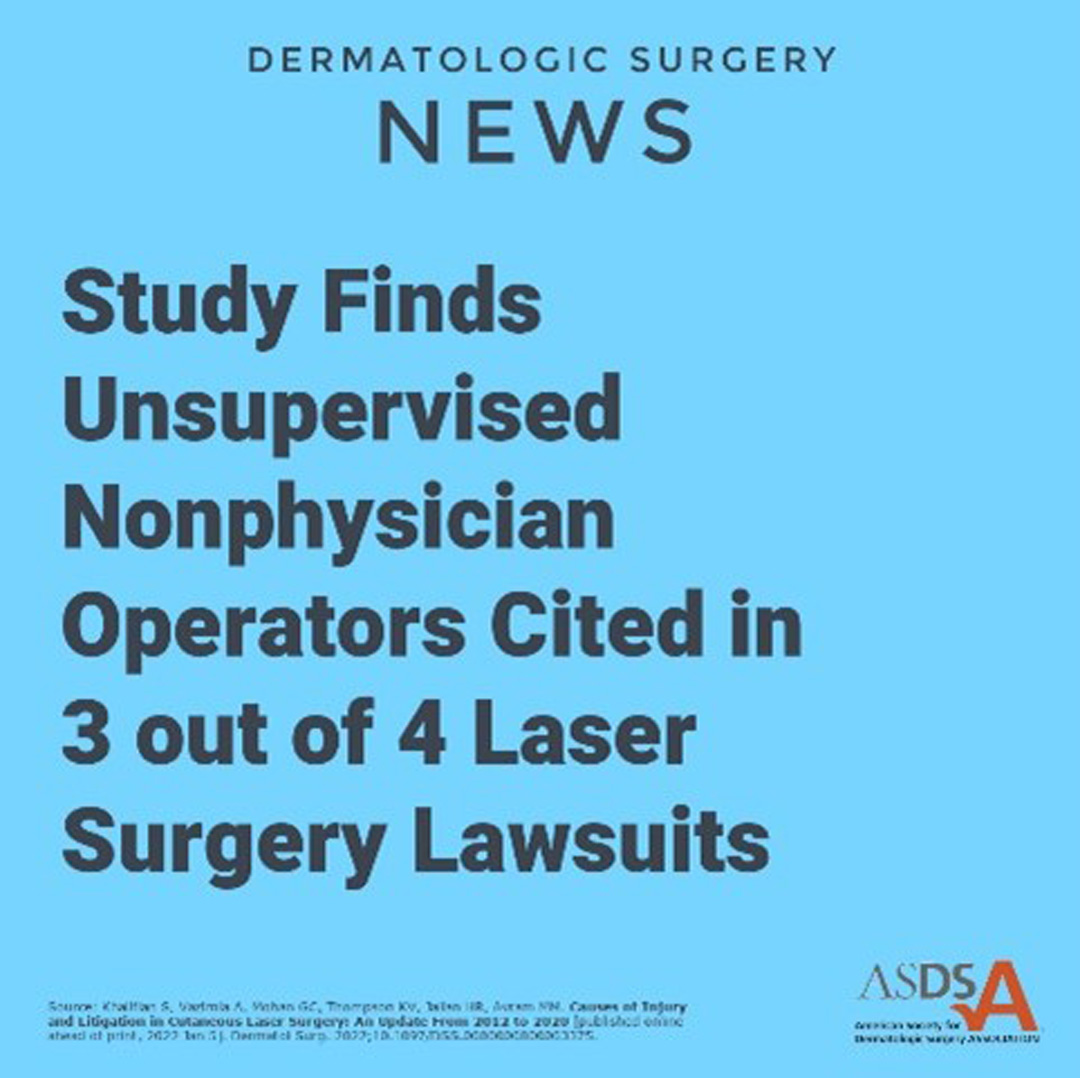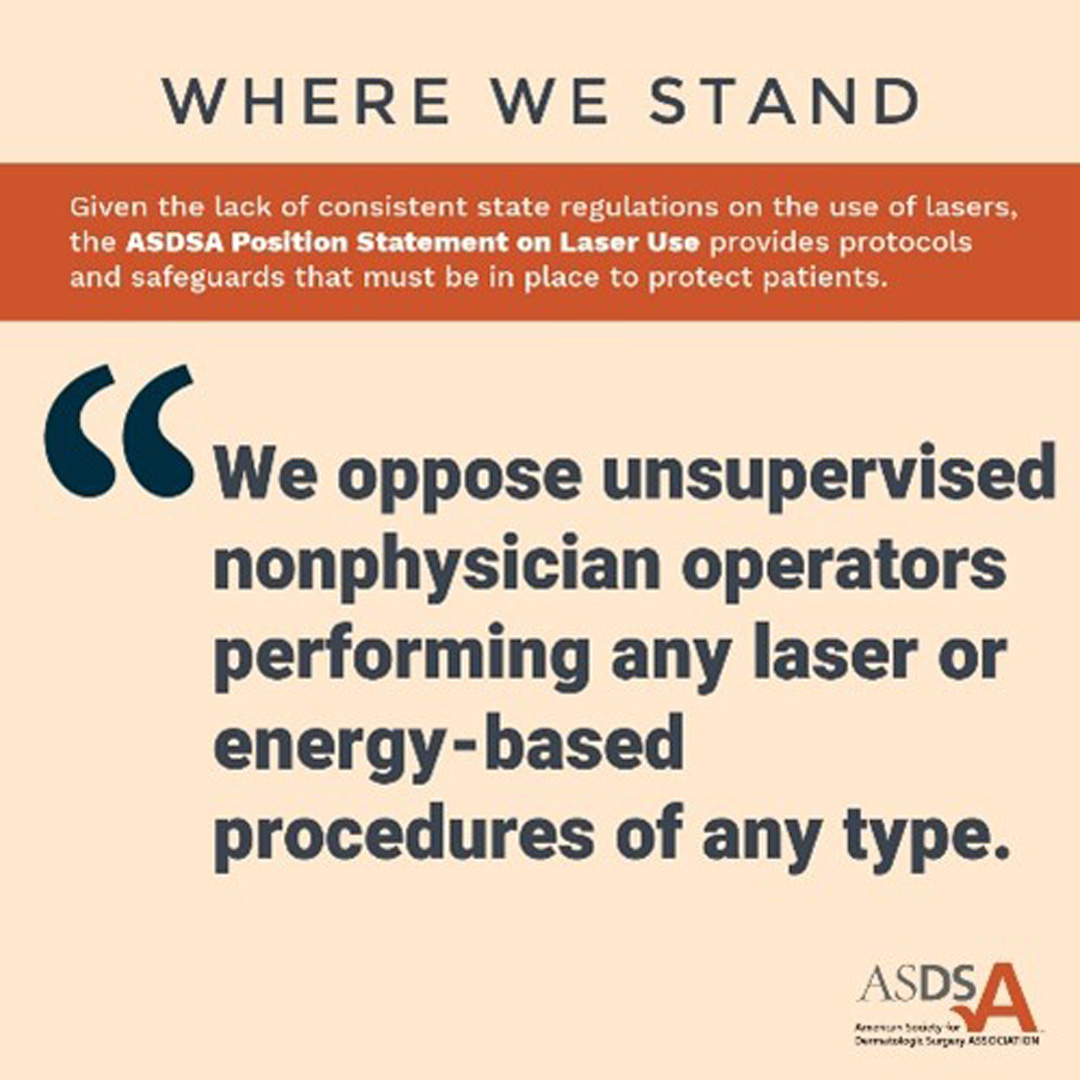While lasers can be extremely safe and effective when used correctly, they can also cause painful burns,  permanent scars and other adverse effects if used incorrectly. A new study in Dermatologic Surgery analyzes cases of liability claims due to a cutaneous laser surgery device that took place in the United States from 2012 to 2020.*
permanent scars and other adverse effects if used incorrectly. A new study in Dermatologic Surgery analyzes cases of liability claims due to a cutaneous laser surgery device that took place in the United States from 2012 to 2020.*
The study, “Causes of Injury and Litigation in Cutaneous Laser Surgery,” published in the March 2022 issue of Dermatologic Surgery found that of the 69 cases of liability claims due to a cutaneous laser surgery device between 2012 and 2020, 49 (71%) involved a non-physician operator. Laser hair removal was most litigated (44 cases, 64%), followed by laser skin rejuvenation (20 cases, 30%).
This data, the authors note, is consistent with previous findings and laser surgery litigation trends from 1985 to 2012. However, they suggest their findings may underestimate the frequency of injury and litigation caused by unsupervised non-physician operators.
*A solicited, “Commentary on Causes of Injury and Litigation in Cutaneous Laser Surgery,” is published in the same issue.
Where We Stand:
The American Society for Dermatologic Surgery Association (ASDSA) opposes unsupervised non-physician operators performing  any laser or energy-based procedures of any type. Given the lack of consistent state regulations on the use of lasers, our Position Statement on Laser Use provides protocols and safeguards that must be in place to protect patients.
any laser or energy-based procedures of any type. Given the lack of consistent state regulations on the use of lasers, our Position Statement on Laser Use provides protocols and safeguards that must be in place to protect patients.
Model state legislation (“Safe Laser and Energy-Based Device Act”) provided by ASDSA’s Patients/Physicians United for Laser Safety and Efficacy (PULSE) Coalition further states that prior to delegating the performance of a laser or energy-based procedure, the delegating physician must perform the initial assessment of the patient to determine which procedure is appropriate for the patient and determine the settings on the chosen device.
On July 31, 2021, Ohio became the first state to adopt patient protections brought forward in the PULSE Coalition's model legislation (4731-18 Ohio Administrative Code).
How You Can Advocate for Change:
- Your story can make a difference. If you’ve been injured during laser surgery, share your experience on social media (tag @ASDSAdvocacy). Authentic patient stories help elected officials understand why this issue is so important. Photos of laser injuries shared on social media can help prompt national attention to the issue and encourage change.
- Don't forget to share positive experiences. A polite comment or testimonial about your laser surgery is always appreciated—especially by your local dermatologic surgeon.
Additional Information: